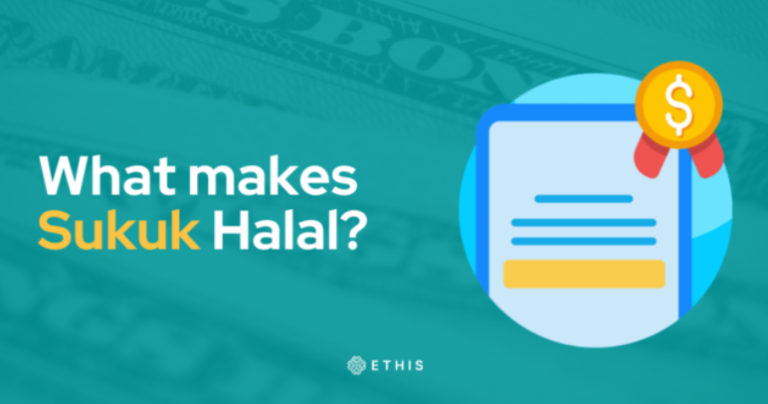
Similar to a bond in Western banking, an Islamic financial certificate, also known as a Sukuk, is a financial instrument that complies with Islamic religious law (Shariah).
Because the traditional Western interest-paying bond structure is not permitted in the Islamic financial system, the issuer of a Sukuk essentially sells a certificate to an investor group and then uses the proceeds to purchase an asset in which the investor group has a direct partial ownership interest. In addition, the issuer must make a contractual commitment to purchase back the bond at par value at some point in the future.
What qualifies Sukuk as halal?


On the surface, Sukuk differs in form and composition to adhere to the Islamic faith’s stringent prohibition on the payment of interest (riba). Bonds constitute a formal financial obligation, whereas Sukuk represents an undivided beneficial ownership stake in an asset.
Islamic-compliant assets are distinguished from conventional fixed-income instruments by two key characteristics. The first is the structure of the security, and the second is the requirement that the financial instrument is assessed by an Islamic religious body before issuance to determine its halal status.
1. Sukuk’s basic structure


Islamic economic theory encourages profit-sharing financing arrangements in which the financier accepts some of the business risks. As a result, both the investors and the issuers of the investment certificates bear a portion of the risks and rewards associated with the operation.
An investment certificate’s investment return (coupon rate), or principal value, at the end of its tenure cannot be guaranteed by the issuer; hence establishing a true risk-return relationship. Conventional bondholders, on the other hand, get cash flows that are independent of the amount of profit or loss earned from the money obtained via the issuance of bonds.
Sukuk must be compliant with Islamic investment principles in order to be termed halal. When it comes to commercial enterprises, the investment certificate itself must indicate an ownership or beneficial ownership interest in their assets. It is necessary for the certificate’s structure to represent a legal transfer of ownership of the underlying assets from the issuer to the investor in order for this to be achieved. The net profits of the underlying assets are used to calculate the payments to be made to certificate holders.
Furthermore, if the market value of the security’s underlying asset or commercial operation increases throughout the investment certificate’s term, Sukuk investors may be able to earn a larger value after the certificate’s tenure. In contrast, when a bond matures, bondholders receive nothing more than the redemption of their original principal, or par value.



2. Assessment of Sukuk by a religious body


To be considered halal, issuers of Sukuk must get a fatwa and submit to a religious review and approval procedure conducted by Islamic experts prior to issuing the certificates.
The Accounting and Auditing Body for Islamic Financial Institutions (AAOIFI), a Bahrain-based Islamic financial standards organization, creates guidelines requiring constant security monitoring by a board of Islamic scholars.
Each security’s prospectus must specifically state that it must adhere to Islamic rules and principles, and an Islamic board must approve the issue’s processes and oversee the project’s execution throughout its duration.
What differentiates a halal Sukuk?
| Sukuk | Conventional Bonds | |
| Underlying Asset | Proof of asset ownership | Debt obligation |
| Legal Structure | Each holder has undivided beneficial ownership in the underlying assets. | The issuer is contractually obligated to pay interest and principal to bondholders on defined dates. |
| Halal considerations | The underlying assets are permissible under Islamic law (halal). | n/a |
| Pricing | Pricing based upon the value of underlying assets | Pricing is based on the credit rating of the issue and the issuer |
| Valuation | Buyers acquire valuable assets. | Buyers act as creditors in an implicit loan agreement |
| Investment rewards and risks | Holders receive a share in the profits generated by the underlying assets (and accept a share of any loss incurred) | Holders receive periodic interest payments over the life of the bond, and the principal is returned at maturity. |
Conclusion


On the surface, Islamic certificates resemble conventional bonds, but the risk-sharing principle and rewards linked to the performance of the security’s underlying assets set them apart.
While Islamic certificates shares some characteristics with conventional bonds on the surface, the risk-sharing concept, along with returns that are directly related to the performance of the security’s underlying assets clearly distinguishes these investment certificates from traditional bonds.
Sukuk certificates serve as proof of ownership of the underlying assets or the right to use or benefit from them. As such, Sukuk promotes investing rather than loans. Additionally, these assets are subjected to a rigorous evaluation by a renowned advisory board to ensure that the investing activity adheres to Islamic standards.





Top Posts
Islamic P2P Crowdfunding Explained
Halal Money Matters: How Muslims Can Balance Deen and Dunya with Smart Islamic Finance
Halal Investments for Singapore Muslims? It’s time for a shake-up in the Islamic Investments scene.
Smart investment for making Halal money
3 Reasons Why Property Crowdfunding is the Smart Investment for You